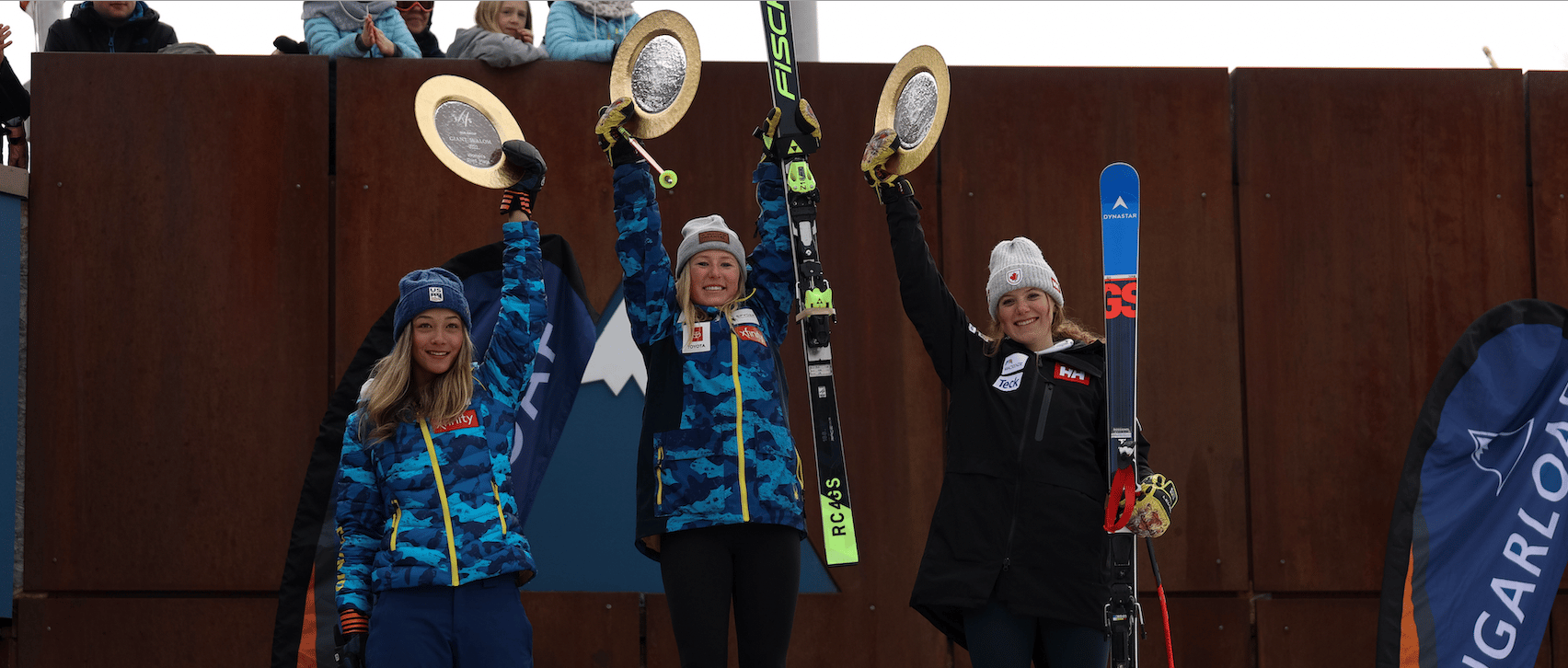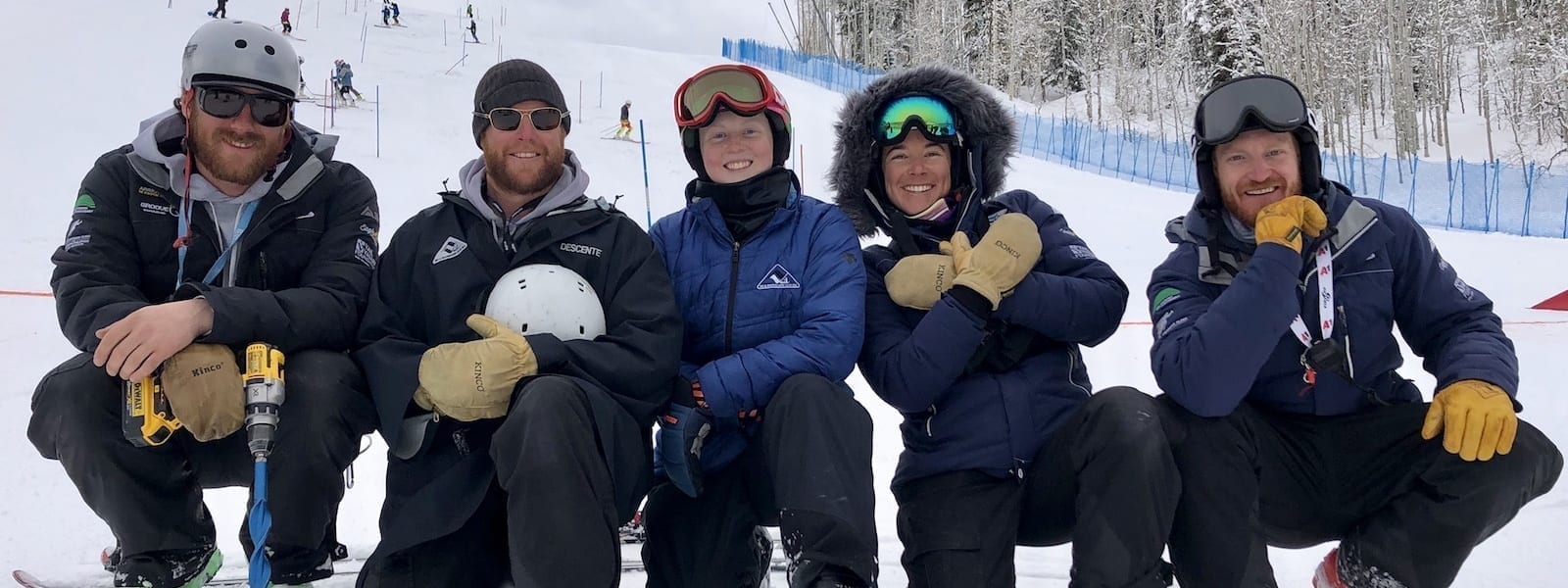Inside the Ski Racing Mind: Is Skiing the Best Sport?
 I’m up at Sugar Bowl with my wife and two daughters for our pre-Christmas vacation and our week has been both incredibly enjoyable and challenging in some ways. Perhaps because of the indescribable joy I experience skiing with my family, plus it being the holiday season and the end of another year, I’ve been waxing philosophical about our sport and thought I would share some of my thoughts about it.
I’m up at Sugar Bowl with my wife and two daughters for our pre-Christmas vacation and our week has been both incredibly enjoyable and challenging in some ways. Perhaps because of the indescribable joy I experience skiing with my family, plus it being the holiday season and the end of another year, I’ve been waxing philosophical about our sport and thought I would share some of my thoughts about it.
My musings began with a simple insight: Skiing may be the best sport out there. Here’s why.
Skiing is the only sport in which a parent and a child can participate together and both can enjoy it (not possible in tennis, golf, biking, or running). I skied with my 4-year-old daughter today and while she was snowplowing her way down the mountain with a big grin on her face while singing a song, I was behind her arcing down the mountain with a big grin on my face while singing a song. There is something so pure about skiing with your family. And, as I noted last week, nothing brings me more joy.
There is also something unique and special about skiing for children and adults alike. I’m constantly amazed at the sheer enjoyment so many people get from skiing. Rarely do I come across people who don’t like to ski (perhaps because I’m making this observation at ski areas!). Even in the worst conditions, if there’s fun to be had, children find it. And today I saw a group of adults taking their first ski lesson. Maybe because of rather than in spite of their initial ineptitude and falls, these new converts to our sport were all smiles, laughter, and pride when they first successfully descended what is ostensibly considered the “baby slope.” Perhaps because the idea of going outside in the cold of winter, bolting a pair of boards to their feet, holding onto two sticks, and schussing (such an old-school word, I know) down the mountain is so alien to them, people of all ages find endless fascination in skiing.
One of the most worthy aspects of skiing is that it is a lifetime sport that children can master, participate in for many decades, and pass on to their children (you don’t see too many adult pole vaulters or wrestlers). I marvel whenever I see three-year-olds skiing on their own and appreciate their parents for allowing them the opportunity. I am forever grateful to my father and mother who took up skiing in his early 20s (they actually met on a ski trip) and made it our family’s passion (and my father skied until he was 81 years old). To be able to share their legacy with my children is a gift that I will never be able to adequately repay them.
One of the beauties of skiing is that it is the rare sport that is non-competitive (unless you get into racing) and there is no objective criterion of success. There are results, no winners, no losers. You make it from the top to the bottom in one piece, whether with grace and athleticism or the Big Ugly, you’ve succeeded.
Skiing also provides opportunities for children to learn how resilient they can be, in a world in which many parents don’t give their children that chance. The other morning my four-year-old (a temperamental lass, to be sure) was crying because she didn’t want to join her mini-mites group for a morning of skiing. My wife wanted to give in to her and I wanted her to tough it out. I asked her coach, Jill, who has been teaching kids for a decade, what we should do and she said three words that were music to my soul, “drop and go,” meaning hand her over and get the heck out of there. Within a minute of our departure, our daughter had stopped crying, had a smile on her face, and had a great morning of skiing. What a great lesson for all parents. If we allow our children to struggle and give them the space to figure things out on their own, they usually can. Most basically, skiing toughens kids up and shows them what they are capable of.
 Skiing is also one of the most social of sports. In just a few days here this week, I’ve skied with the surgeon who fixed my shoulder three years ago and developed a fast friendship with a federal district court judge who used to play hoops with President Obama (even if he is a snowboarder!). I reconnected with a woman who reminded me that I was her TA in an introductory psychology class my senior year at Middlebury and another woman who attended my first “psychology of ski racing” talk after receiving my doctorate. She was 12 years old at the time and, to this day, remembers what I talked about. In the very short time that our girls have been a part of the Sugar Bowl ski team, my wife and I have established a depth of connection with other parents that would normally take months or even years to create. In turn, both of our daughters have found little buddies with whom they can bomb around the mountain and play with at home.
Skiing is also one of the most social of sports. In just a few days here this week, I’ve skied with the surgeon who fixed my shoulder three years ago and developed a fast friendship with a federal district court judge who used to play hoops with President Obama (even if he is a snowboarder!). I reconnected with a woman who reminded me that I was her TA in an introductory psychology class my senior year at Middlebury and another woman who attended my first “psychology of ski racing” talk after receiving my doctorate. She was 12 years old at the time and, to this day, remembers what I talked about. In the very short time that our girls have been a part of the Sugar Bowl ski team, my wife and I have established a depth of connection with other parents that would normally take months or even years to create. In turn, both of our daughters have found little buddies with whom they can bomb around the mountain and play with at home.
Skiing does have its risks. My younger daughter broke her leg last season and was in a cast for six weeks. Yet, her first day back on skis was like she never had been off of them. In a world in which many parents are terrified of exposing their children to the smallest risks, children who are allowed to, literally and metaphorically, fall down gain such a powerful sense of pride, confidence, and real self-esteem that will pay huge dividends in their lives.
Much like life though, this week hasn’t been without its dark sides. At one end of the age spectrum, every parent’s worst nightmare was realized when a seven-year-old member of the Sugar Bowl ski team died when he fell off a chairlift. At the other end of the age spectrum, the ski racing world mourns the loss of Warren Hellman, a leading figure in skiing for half a century. Our hearts go out to both families.
All of these experiences, both the highs and lows, remind us that life can be both so rich and so precarious. Perhaps it’s this recognition that causes us, old and young, expert and novice, to stand at the top of a trail, take a deep breath, push off, and allow ourselves to experience the exhilaration and joy of skiing, the best sport there is.
Happy holidays to all and to all a good night…
Note: I’ll get back to the “important” stuff of the mental side of skiing next week.
Follow me on Facebook, Twitter, or YouTube.
About Dr. Jim Taylor
Dr. Jim Taylor knows
the psychology of ski racing! He competed internationally for Burke
Mtn. Academy, Middlebury College, and the University of Colorado. For
the past 25 years, Jim has worked with many of America’s leading junior
race programs as well as World Cup competitors from many countries. He
is a clinical associate professor in the Sport&Performance
Psychology graduate program at the University of Denver. Jim is the
author of Prime Ski Racing: Triumph of the Racer’s Mind and his latest
parenting book is Your Children are Listening: Nine Messages They Need
to Hear From You.
Click here to go to Dr. Jim’s archive.





















